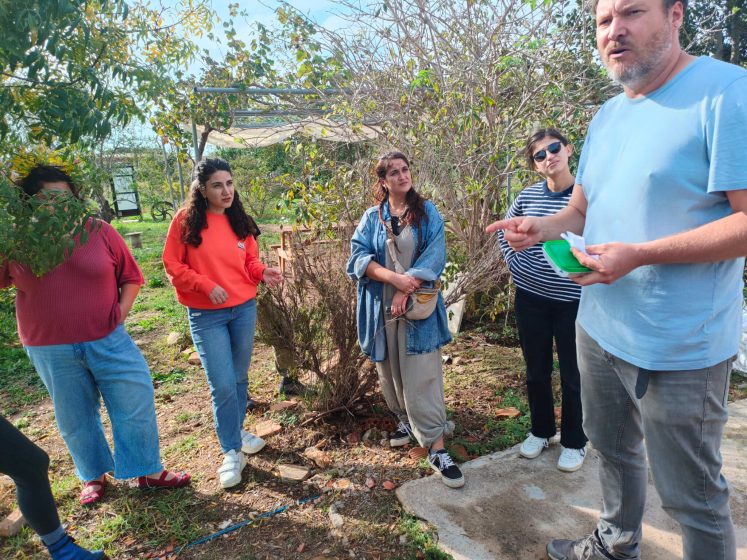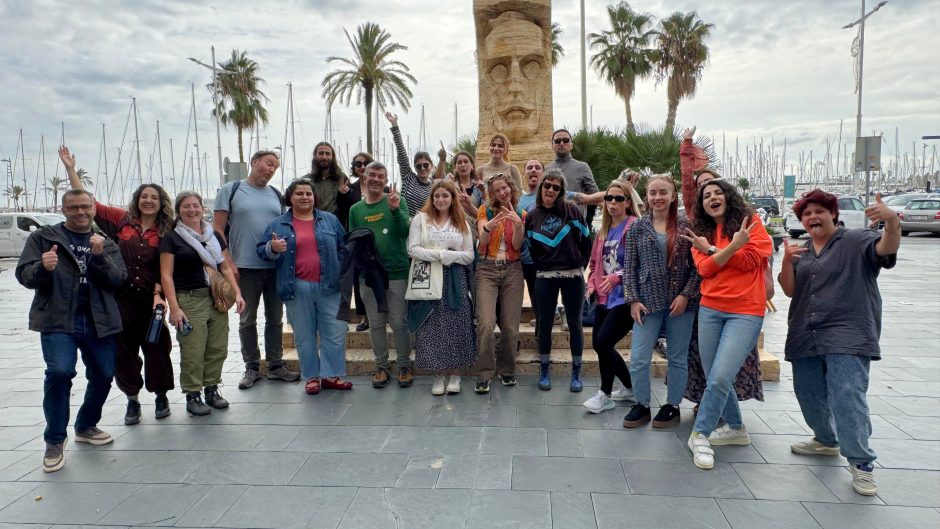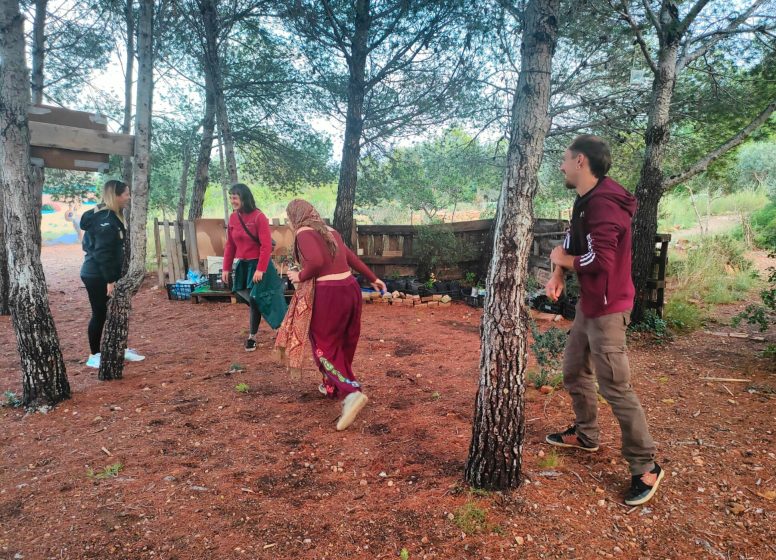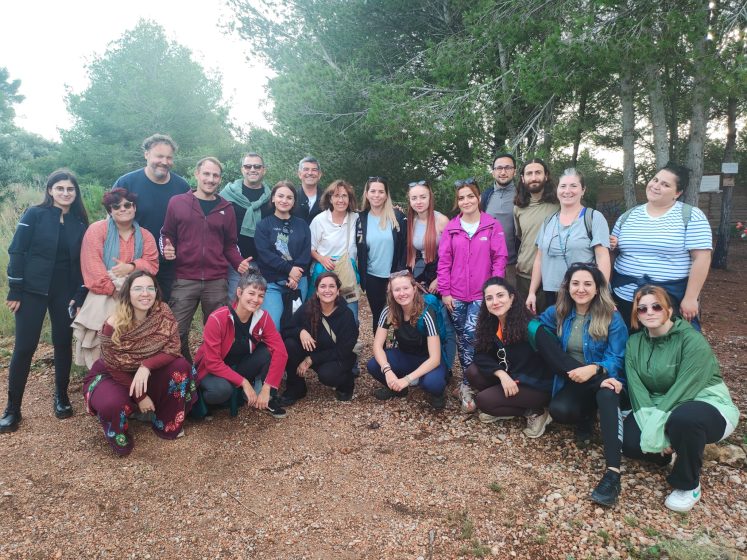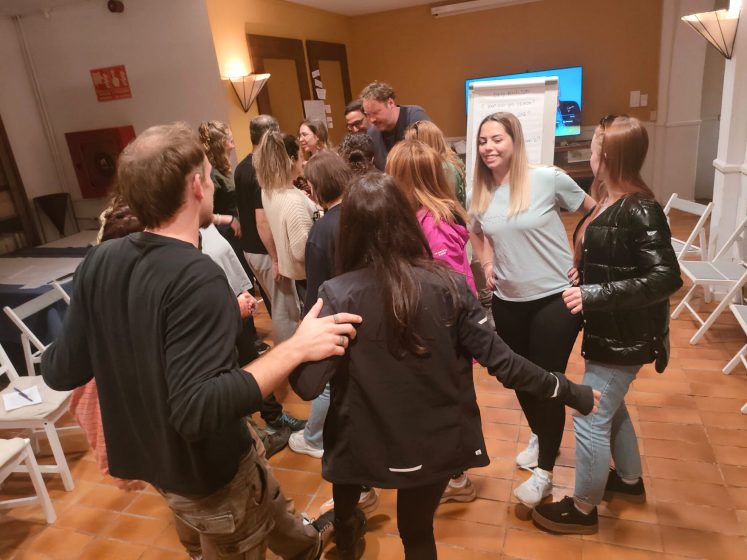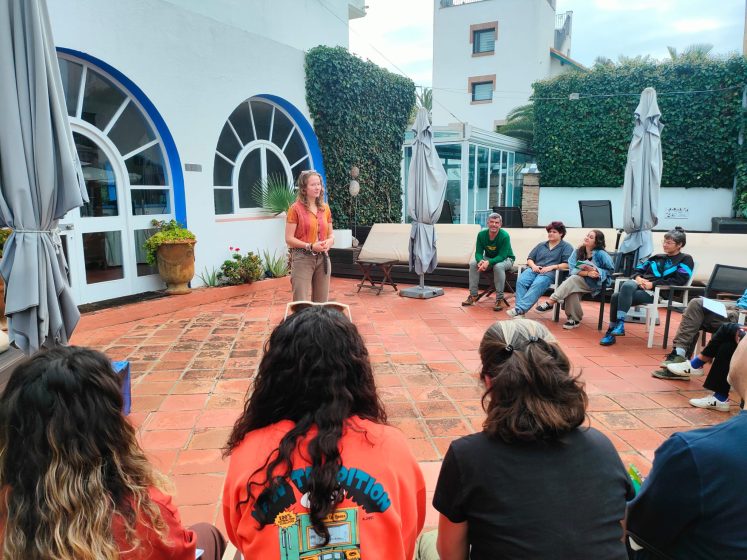We have just completed the “ECOrasmus 360°” training course, which took place from October 27 to November 2 in Vilanova i la Geltrú (Barcelona, Catalonia, Spain).
The project, organized by the Fundació Catalunya Voluntària, brought together 22 people from 11 organizations in 9 countries, including Armenia, Azerbaijan, Bulgaria, Georgia, Italy, the Netherlands, Turkey, and Ukraine, at the Cesar Hotel in the Baixamar district.
In addition to presenting the lessons and results of the ‘ECOrasmus’ project and presenting its impressive manual and website www.ecorasmus.eu, we have been able to work together with two main objectives: to improve the ecological practices of the participating organizations, in the preparation, implementation, and evaluation of face-to-face activities, on the one hand, and to create an informal network of youth NGOs committed to joining forces to be ecological in the activities we organize throughout Europe.
Despite the tremendous rains that have brutally hit the Valencian community and other places and that have left us deeply shocked and forced us to change the program (canceling the activities of the first morning in the forest), we have managed to alternate theoretical and practical activities, outdoors and indoors, to explore, share and learn new ecological instruments, practices, and guidelines that we can use in the organization of youth activities.
In the course, we have developed tools to establish, evaluate, and improve a list of ecological competencies (skills, attitudes, and interests) that can be applied both together with youth workers and with young people. We have also taken the opportunity to develop new ideas and proposals for future collaborations.
Participating in the activity has allowed me to discover the diverse experiences and initiatives carried out by the group, as well as their deep involvement and dedication to the environmental cause. This has allowed me to expand my repertoire of good green practices that I can use and to be part of the creation of new opportunities for collaboration.
The visit to the Ortoll forest, the urban harvest in Vilanova, and the discovery of sustainable urban development initiatives in Barcelona have been the perfect opportunities to learn about new ways of acting and organizing activities in urban and forest environments.
I would like to thank the entire group and the facilitators for their interest throughout this week and the enriching workshops and activities they have presented; the Cesar Hotel for the quality of its facilities and the Erasmus+ program for allowing us to develop projects as key and important as this course.
Théo Giaufret
